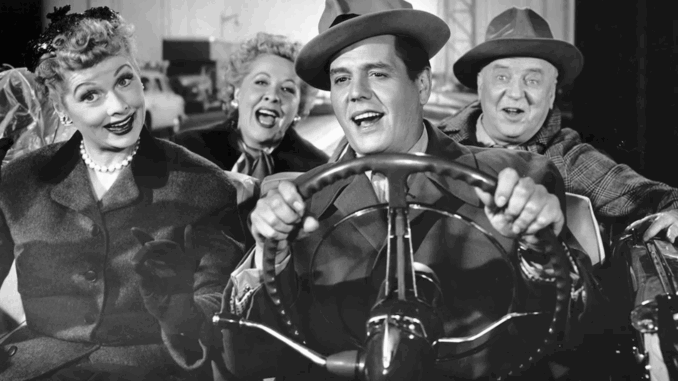
When I Love Lucy first aired in 1951, audiences tuned in expecting lighthearted comedy. What they didn’t anticipate was a groundbreaking depiction of marriage on television, one that was both aspirational and flawed in a way that resonated with millions. Lucy and Ricky Ricardo weren’t just fictional characters; they were reflections of real struggles, cultural shifts, and the timeless dance between love and ambition.
The On-Screen Chemistry That Felt Real
Lucille Ball and Desi Arnaz weren’t simply co-stars — they were married in real life, and that authenticity seeped into every glance, every argument, and every reconciliation on screen. When Lucy schemed her way into Ricky’s nightclub shows, audiences laughed, but they also saw the dynamics of a couple negotiating boundaries, careers, and personal desires.
Their chemistry was undeniable, but what made it revolutionary was its honesty. Television at the time was filled with picture-perfect families. The Ricardos, in contrast, bickered, plotted against each other, and sometimes drove each other crazy. Yet, the love was always there — messy, complicated, and true.
Love Against the Odds
:max_bytes(150000):strip_icc()/I-Love-Lucy-da032c143004431faa6e9ee37d2126d7.jpg)
Behind the scenes, the marriage was not as idyllic. Desi Arnaz’s struggles with fame and lifestyle contrasted with Lucille Ball’s determination to hold both their family and career together. When they eventually divorced in 1960, fans were devastated. But in many ways, their real-life separation gave the show even more poignancy.
What endures is the reminder that love isn’t about perfection. Lucy and Ricky showed us that laughter can mend disagreements, and devotion doesn’t mean the absence of conflict. They were flawed, but they were real — and that’s why they’re still beloved.
The Legacy of Screen Love
Today, couples on sitcoms owe a debt to Lucy and Ricky. They opened the door for relationships that feel authentic, layered, and evolving. Watching Ricky’s exasperated “Lucy, you got some ’splainin’ to do!” or Lucy’s determined grin when plotting her next stunt, audiences saw love in its truest form: imperfect but enduring.
Even decades later, I Love Lucy remains the gold standard for how to balance comedy with heart, proving that romance on screen can be both funny and deeply human.